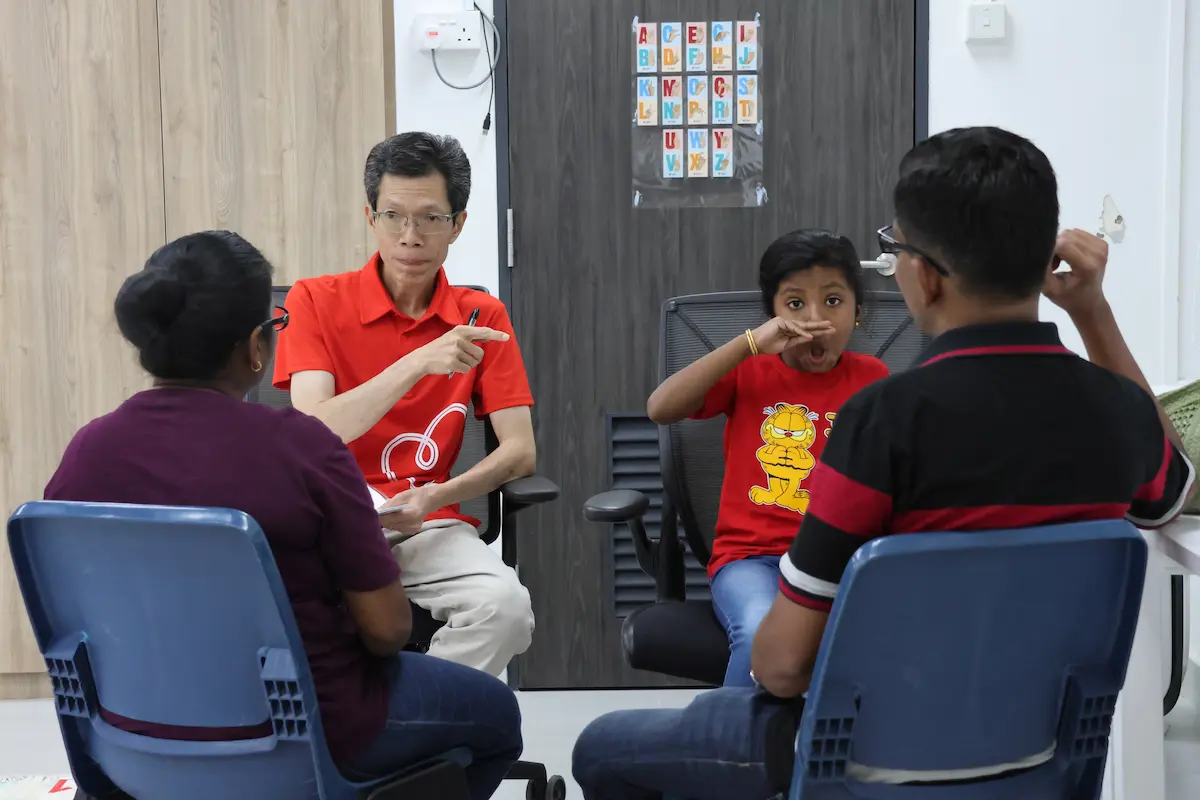Explaining Divorce to Your Child

We understand that undergoing a divorce can be difficult and explaining the sensitive issue to your child is all the harder. As children are often impacted by their parents’ divorce in terms of their emotional well-being and their thoughts, it would be helpful for your child to hear about the change that would affect the family directly from you as this would also allow your child to know who he/she can turn to if he/she requires any clarification or has any questions.
In this article, Senior Counsellor at TOUCH Integrated Family Group, Ms Elysia Tan, shares some tips on how you and your spouse can approach this sensitive topic with your child.
Before you begin, discuss with your spouse first on how to explain the topic to your child and plan what each of you would like your child to understand about the divorce. Next, keep in mind your child’s maturity level and age which would affect his/her ability to comprehend the matter. A young child may not understand the term ‘divorce’ yet, whereas an older child would most likely know the definition. As such, remember that the way you explain to your child is dependent on how old he/she is.
In addition, try to be present together with your spouse as you approach the topic with your child, because it will provide your child with a chance to understand the decision made by both you and your spouse.
“Parents need to be prepared to explain and listen to their child beyond just breaking the news of the divorce. Being approachable and sensitive to the needs of the child on subsequent occasions is crucial to supporting their child emotionally,” says Ms Tan.
Here is a guideline of some Do’s and Don’ts which parents can follow if they are planning to approach the issue of divorce with their child:
Do’s
Let your child know that he/she is not to blame for the divorce
Your child may think that he/she is the cause of your divorce, which could potentially result in a lot of self-blame. Thus, re-assure your child that it is not his/her fault and that he/she has nothing to do with it. Consider the feelings of your child and allow your child to express his/her sadness or self-blame.
Remind your child that you will always love him/her
Love is a very important factor that shapes your child’s character as he/she grows. Tell your child “I love you” or “You will always be my son/daughter no matter what” and be patient with your child as he/she come to terms with the divorce.
Always be there for your child
“Actions speak louder than words” is a common phrase we all heard while growing up. As cliché as it might sound, the phrase holds a lot of truth. Apart from letting your child know that you will always be there for him/her, try to be physically present by lending a listening ear to his/her worries or concerns regarding your divorce.
Don’ts
Argue or discuss your divorce with your spouse in front of your child
Instead… Plan a proper place and time for your discussion
It can be very traumatising for your child to see you and your spouse arguing and talking about divorce. Hence, it would be best if you and your spouse can discuss the issue in private. Try to find a proper place and time to discuss your divorce away from your child.
Make your child take sides
Instead… Support your child
Spotlighting your child in your discussion puts him/her in a difficult position. Making your child choose which parent to follow or try to “sell” yourself to your child so that he/she will choose you over your spouse (i.e. don’t say “If you choose me, I will buy you everything you want”) puts unnecessary pressure on them. Try to show your child as much attention and support he/she needs during this difficult time.
Avoid answering your child when he or she questions about your divorce
Instead… Be prepared to be available and answer your child
While some children don’t wish to talk right away, others will have many questions. If your child raises his/her concerns regarding you and your spouse’s divorce, don’t turn him/her away but be as truthful and clear as you can in your responses. If you don’t have the answer to a question, tell your child that you’ll let him/her know when you figure things out. Let your child know that he/she can always ask new questions when they arise. Most importantly, convey to your child the kind of changes which might happen to his/her daily/weekly routine to minimise uncertainty. Keep in mind to minimise disruptions to your child’s life as much as possible.
Do remember to respect your child’s need for time, space and even answers. In addition, your child should be the last person you should turn to for emotional support because he/she is also going through the process. If you require professional support, feel free to contact us at 6709 8400 or click here.
TOUCH Integrated Family Group (TIFG) aims to equip families with resources to face multi-faceted issues at different life stages. TIFG focuses on providing Resources to equip families to cope with different stressors, enabling families to strengthen Roles in transitions, and empower families to build Resilience. This is done through an integrated suite of services to support the family as a unit, with emphasis on education, intervention and advocacy


